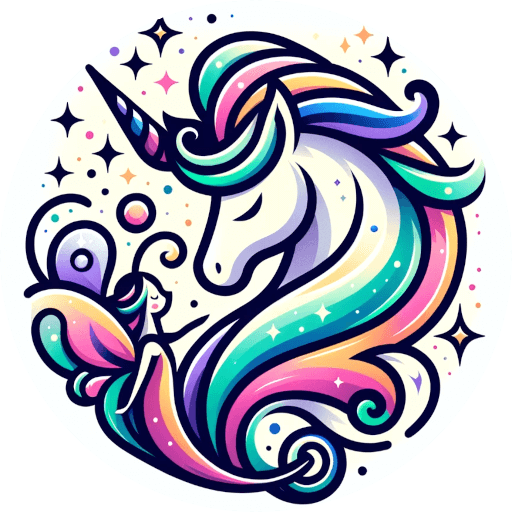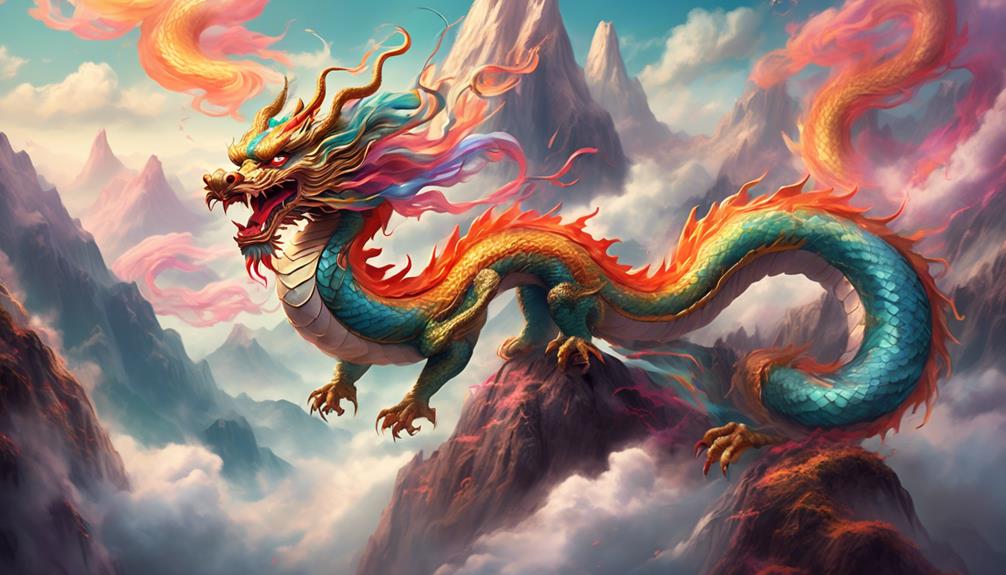In Chinese tradition, dragons symbolize power, strength, and good luck. They are revered as divine creatures with the ability to bring blessings and fortune.
The symbolism of dragons in Chinese culture goes beyond mere mythological creatures; they carry deep cultural significance and are intertwined with various aspects of life.
From ancient beliefs to modern practices, the role of dragons in Chinese tradition is multifaceted and continues to captivate the imagination of people worldwide.
Understanding the symbolism of dragons in Chinese tradition provides a fascinating glimpse into the rich tapestry of Chinese culture and beliefs.
Key Takeaways
- Dragons symbolize power, strength, and good luck in Chinese tradition.
- Dragons are associated with the Emperor and hold a prominent role in Chinese mythology.
- Dragons are believed to bring good fortune, prosperity, and rain for agriculture.
- Dragons shape and embody core cultural values and beliefs in Chinese society.
Origins of Chinese Dragon Symbolism
Originating from ancient Chinese mythology, the symbolism of Chinese dragons has captivated generations with its multifaceted significance and enigmatic origins. Chinese dragons have been deeply entrenched in traditional Chinese culture, symbolizing power, strength, and good luck.
These mythical creatures are particularly revered during the Chinese New Year celebrations, with the dragon dance being a prominent feature. In addition, the Chinese zodiac dedicates an entire year to the Dragon, emphasizing its importance in Chinese culture. The dragon is also associated with the Emperor, further highlighting its esteemed status.
While the exact origins of the Chinese dragon symbol remain uncertain, it's clear that it holds a revered place in Chinese tradition, representing auspicious powers and embodying the rich cultural heritage of China.
Cultural Beliefs and Meanings
Dragons hold a significant place in Chinese culture, embodying powerful symbols and deep-rooted beliefs. In Chinese tradition, dragons symbolize power, valiancy, and excellence. They're associated with the Chinese Zodiac, and their presence is celebrated during dragon dances and dragon boat races.
The colors of Chinese dragons hold specific meanings; for instance, the color red represents energy, strength, and good luck, while gold symbolizes wealth and prosperity. Additionally, dragons are considered an imperial symbol, representing the emperor's authority and good fortune.
Chinese people believe they're descendants of dragons, and these mythical creatures are thought to bring good luck and fortune. Furthermore, the dragon is associated with beauty, wisdom, and friendliness in Chinese culture, differing from the Western perception of dragons.
As a result, Chinese dragons have become a spiritual and cultural symbol, influencing other Asian countries as well.
Depictions and Representations
Representations of dragons in Chinese culture take on various forms, including in pictures, festivals, and as characters in the Chinese language, showcasing the pervasive influence of these mythical creatures.
Traditional Chinese dragons are deeply ingrained in the culture and history of the Chinese people, with depictions of the dragon being prominent in art, literature, and celebrations. The dragon is a symbol of China and has been associated with imperial power and the Dragon Kings.
Dragon dances are a common feature in Chinese festivals, symbolizing good luck and prosperity. These depictions of the dragon have become emblematic of Chinese civilization and are closely intertwined with the ethnic identity of the Chinese people.
The dragon's significance extends beyond mere representation, shaping and embodying core cultural values and beliefs.
Role in Chinese Mythology
The Chinese mythology features dragons as powerful and revered creatures, embodying virtues such as valiancy, excellence, and divinity. In Chinese mythology, dragons symbolize power, authority, and strength. They're often associated with the imperial family, signifying the emperor's divine right to rule.
The dragon is also a symbol of good fortune and the bringer of rain, essential for agriculture. It plays a crucial role in the Chinese zodiac, representing wealth, wisdom, and longevity. According to legend, the Yellow Emperor (Huangdi), a pivotal figure in Chinese mythology and culture, was said to have been born with the appearance of a dragon, signifying his divine and imperial status.
Dragons are deeply interwoven into the fabric of Chinese mythology, representing both mythical creatures and embodying essential cultural and spiritual significance.
Significance in Modern Practice
Signifying ancient cultural values, the enduring significance of dragons in modern Chinese culture is palpable in various art forms and celebratory occasions. Dragons symbolize power, strength, and good fortune in modern practice.
During the Chinese New Year, dragon dances are performed to bring luck and prosperity. Chinese businesses often incorporate dragon motifs to evoke success. Additionally, the dragon's representation is widely used in fashion and design to convey strength, power, and mystique.
The meaning of the dragon continues to hold great importance, representing imperial palaces and symbolizing prosperity. Overall, the dragon symbol maintains its traditional significance while adapting to modern contexts, becoming an integral part of contemporary Chinese culture and a symbol of prosperity, strength, and good fortune.
Frequently Asked Questions
What Does a Dragon Symbolize in Chinese Culture?
In Chinese culture, dragons symbolize power, good luck, and prosperity. They are celebrated in dragon festivals, art, and dance. Dragons are mythical creatures with deep cultural significance, representing wisdom, authority, and protection in Chinese mythology, folklore, and astrology.
What Is the Chinese Folklore With Dragons?
Chinese folklore is rich with dragon mythology, legends, and symbolism. Dragon rituals, art, and festivals are integral to Chinese culture. Dragon dance is a prominent feature, showcasing the dragon's significance in Chinese history and folklore.
What Do Dragons Symbolize Spiritually?
Dragons hold great spiritual significance, embodying mythical creatures with symbolic meanings in various cultures. They are deeply rooted in ancient beliefs, representing dragon energy and spiritual connections, and hold mystical symbolism in religion.
What Are the 4 Chinese Dragons?
The four Chinese dragons are classified as Bixi, Qiuniu, Yazi, and Chaofeng. Each dragon embodies distinct characteristics and symbolism in Chinese mythology. Their significance in folklore traditions represents power, wisdom, strength, and protection.

